Bellwether booth at Buxton Public School: voters foreshadow change in government at federal elections
Since 2004, one polling booth in the Macarthur region has foreshadowed the outcome of federal elections. Find out what issues voters are considering when it comes to choosing which box to tick this year.
Macarthur
Don't miss out on the headlines from Macarthur. Followed categories will be added to My News.
One polling booth in the Macarthur region has accurately foretold the outcome of the last six federal elections.
After nearly 18 years of correctly picking the winner, voters at Buxton Public School are foreshadowing a possible change in government in the upcoming federal election.
NewsLocal spoke to a number of residents around the bellwether booth, who expressed dissatisfaction with the government’s handling of the various crises over the last five years.
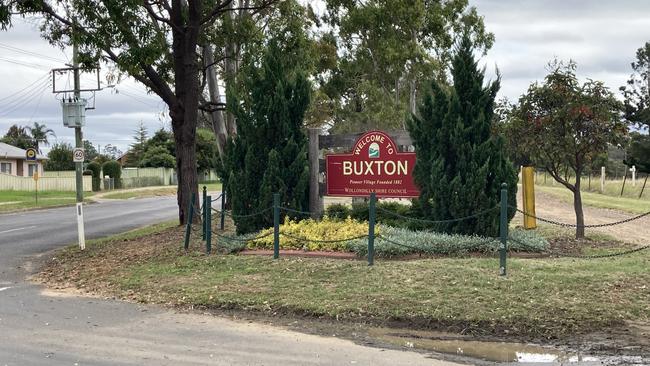
Longtime local Karen was concise in her criticism, saying the community felt neglected.
“I’m not happy at all with our leader at the moment,” she said.
“Our roads are disgusting. We’ve got a beautiful park up there but we did that, the people did that.”
After the damaging floods swept through the region in March, infrastructure and roads were the main issue for residents. Brett said the local infrastructure was just “not up to scratch”, especially with the number of new residents moving into the area.
“The roads are pretty bad. They’ve been bad for a long time,” he said.
Following on from their infrastructure concerns, locals highlighted the lack of transport around Buxton as a major problem.
“There’s a lot of issues out here as far as transport goes,” said Paul, a local father-of-three.
Despite a train line bisecting the town, there are no trains and local buses are infrequent.
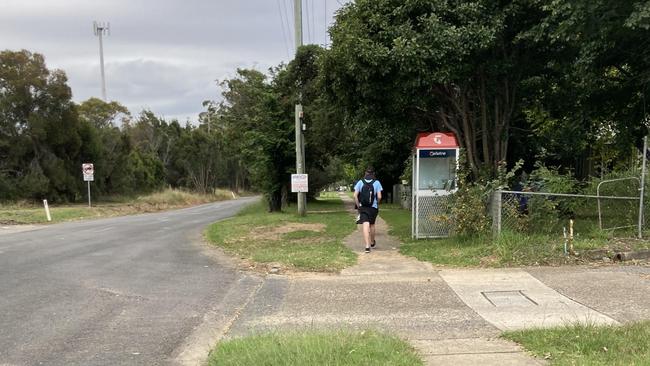
With the “ridiculous” cost of living at the moment, Karen said transport costs were only adding to the stress on residents who were just trying to get by.
“People are moving out here and they’re getting really disgruntled because there’s barely any phone coverage, there’s no buses, no trains, very few taxis for this area,” she said.
Another frequently mentioned top three issue for residents was the lack of quality educational facilities in the region. Local facilities were fit to burst and there was a growing need for more teachers, Paul said.
“Education, that’s a big issue at the moment,” Brett agreed.
Locals said they were disappointed by the lack of co-ordination between the three levels of government which was made abundantly clear when the area was scorched by bushfires, struck by Covid, and then lashed by storms and flooding.
Brett said the community was “low on morale” after being hit by so many unprecedented events, and many people hadn’t had time to think about the federal election.
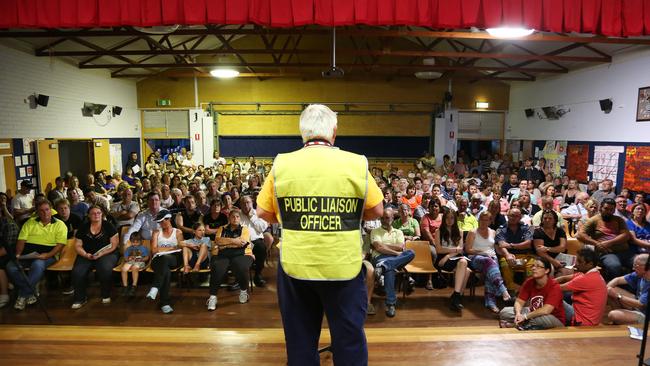
For many of the residents who spoke to NewsLocal, the lack of co-ordinated support was another sign of the government turning a blind eye to their problems.
Paul said the government’s response to the bushfires and unfulfilled promises had left him without a clear idea of which major party would win his vote.
“They’re both saying the same thing. We’ve heard that from the last couple and nothing’s really happened,” he said.
The staunch Liberal supporter said he had lost confidence in the government and they wouldn’t receive his vote – “not this time”.
A local (who wished to remain anonymous) agreed he couldn’t distinguish between the promises made by major parties. He disclosed he will be voting for the Shooters, Fishers and Farmers party in the upcoming election.
“They’re the only people I support,” he said.
“I don’t have much of an opinion on the rest, I think they’re all the same.”
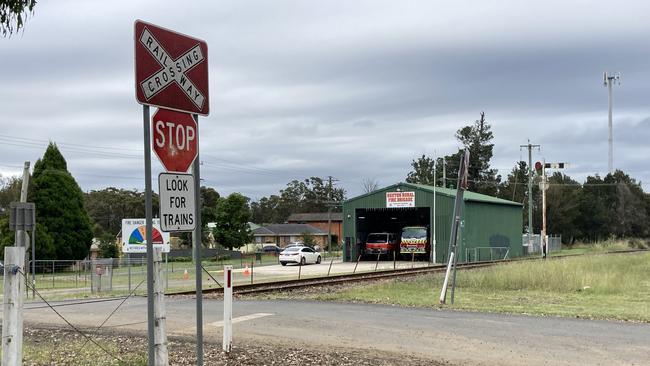
First-time voter Sam has found it hard to engage with federal politics when the decisions seem so far removed from the reality of a small town.
He isn’t sure who he’ll vote for, and admitted: “I’ll just vote out of necessity”.
Residents around the bellwether booth expressed their continuing frustration with being overlooked by the government, a sentiment that rings true across many rural and regional communities.
The major issues highlighted by locals – infrastructure, transport, and education – have remained unchanged for many years.
Longtime local John said he was shocked by the federal government’s commitment to defence in the face of obvious issues at home.
“There’s no way in the world that we should be committing billions of dollars to send three submarines in 40 years‘ time when we’ve got (greater need) for healthcare and education,” he said.
The former local shop owner has become disillusioned with politics, which he said had changed for the worse.
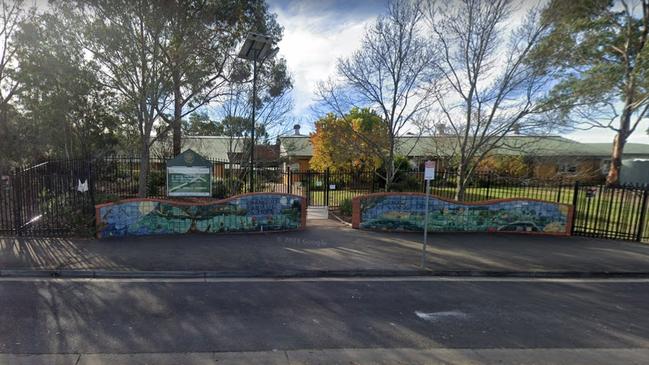
The previously politically-engaged resident said he has campaigned for two major parties and worked with a number of independent candidates over the past 30 years. But now he’s done with politics, he said.
“I just want to get rid of this government, all of them,” he said.
“I think there’s a nastiness in politics now.”
Karen agreed she was tired of the “finger-pointing” in politics, particularly when it comes to controversies. A stalwart supporter of the Labor Party, she said she would probably vote the same way again because she believes Prime Minister Scott Morrison “is not for the people as far as I can see.”
When asked why Buxton has shown such prescience in the federal elections, Karen said the area was often overlooked.
“It’s because we’re the forgotten ones,” she said.
‘Fed up’ outer suburbs
Matthew Deeth, Chair of the National Growth Areas Alliance and Deputy Mayor of Wollondilly Shire Council, said outer suburbs feel like “the invisible middle”.
Cr Deeth said politicians and parties tend to focus on major metropolitan areas or regional cities, and places that do not fall into those categories are left behind.
He said the shift of population during the Covid pandemic will be a “profound test” at the upcoming federal election.
“We know that one third of all federal seats at this coming election are located in outer growth areas and seven of those have a margin of less than six per cent,” Cr Deeth said.
“Electorates in safe seats are sick and tired of pork barrelling going to marginal seats while issues are overlooked in outer growth areas.”
Cr Deeth said investment in vital infrastructure has not kept up with the number of people moving to the fast-growing outer suburbs.
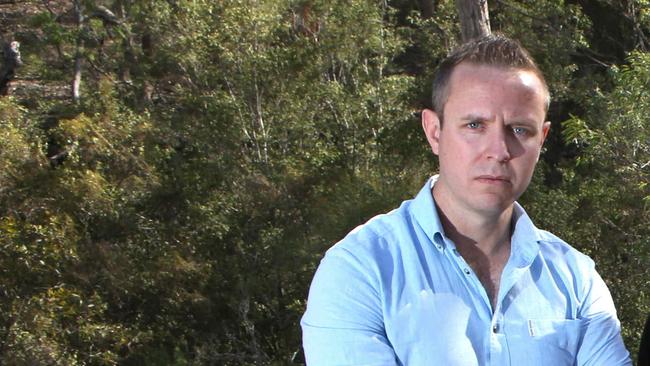
He said this had led to postcode discrimination, nightmare commutes, reduced productivity and declining liveability.
“We deserve access to quality infrastructure, schooling, healthcare and education as much as people in any other part of Australia,” Cr Deeth said.
“With record numbers of Australians choosing to build their lives in the outer suburbs and no signs of slowing down, the political weight and standing of growth areas is undeniable.
“Growth areas cannot be ignored any longer – and it’s in politicians’ interests to ensure they aren’t.”
Cr Deeth said the party that claims victory in the federal election will be the one that successfully prioritises the one in five Australians living in the outer suburbs and introduces a Minister for Growth Areas.
He said while some might argue these are not issues for the federal government, national leaders have a responsibility to bring national leadership and co-ordination.
Bellwether seat vs Bellwether polling booth
Stewart Jackson, senior lecturer in politics at the University of Sydney, explained a bellwether seat is one that follows the electoral trend.
He said it was often used as a predictive measure by commentators on the night of elections.
The Hume seat has been held by the Liberal Party since 1984 but Buxton Public School has been a bellwether polling booth since 2004.
Mr Jackson said when there is a polling booth that consistently reflects the electoral trend it can reveal facts about the demographic of the area.
“So are they working in Campbelltown or Liverpool and are they using the freeways each morning,” Mr Jackson said.
“You are probably going to find that is what is happening and that’s why it’s becoming a bellwether because they are responding to average things.”
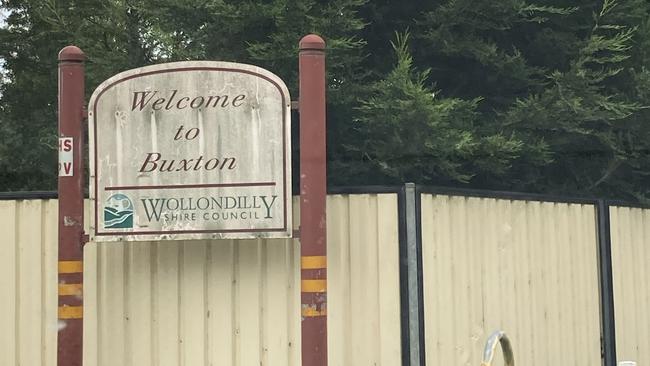
Mr Jackson said bellwether polling booths can reveal that the residents are not “rusted on” to one political party, but rather are influenced by how the party in power will influence their everyday life.
He said it is important to note that the boundaries of the Hume and the demographics of the population have changed.
“(Bellwether booths are) responding to everyday pressures like the price of petrol, where they send their kids to school, and access to hospitals,” Mr Jackson said.
“You have got booths that are close to major centres so are focused on a mix of issues rather than we are a country town that votes for one particular party.”
Mr Jackson said bellwethers are not a “great tool” to predict the election, but they provide insight into what issues could be relevant to voters.




